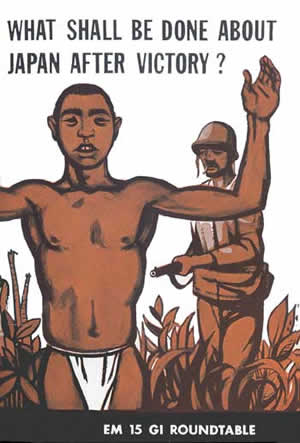By Kenneth Colegrove
Professor of Political Science, Northwestern University
Rewritten by Richard Hart
Assistant Librarian at Enoch Pratt Free Library, Baltimore
(Published June 1945)
 Table of Contents
Table of Contents
Did Japan Have to Go to War for Economic Reasons?
Could the United States Have Avoided a Showdown?
What Should We Do When Japan Has Been Defeated?
How Can We Keep the Japanese from Future Aggression?
Can We Find a Punishment That Fits the Crimes?
Shall We Destroy Japanese Trade and Industry?
What Sort of Government for Postwar Japan?
Can Japan Get in Step with a Peaceable World?
Suggestions for Further Reading
Introduction
On December 8, 1941, America straightened up after Japan’s blow below the belt, full of the anger a fighter feels when he has been badly hurt and knows that his own overconfidence was partly to blame. Out of those bitter early days of the war, ending in the surrender of Corregidor, came one lesson that millions of Americans will not have to learn a second time. We know now that wars do not begin all at once on a quiet Sunday—that it takes years to make a war and that we had ample opportunity to watch this one in the making.
Related Resources

September 7, 2024
Travel and Trade in Later Medieval Africa

September 6, 2024
Sacred Cloth: Silk in Medieval Western Europe

September 5, 2024